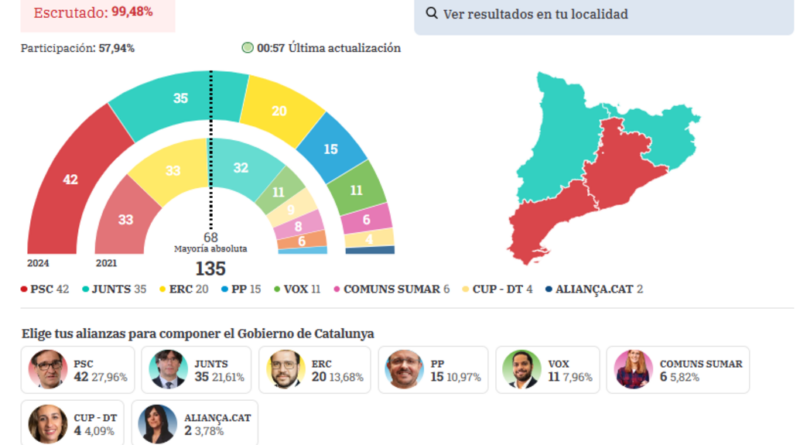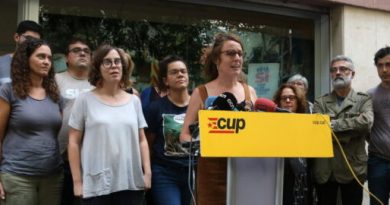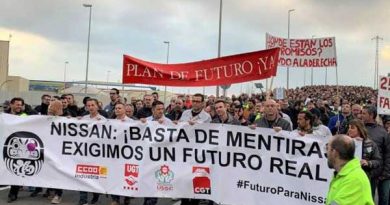12M: Changes, questions and opinions to debate
Salvador Illa (PSC) was the most voted. The independence movement lost its absolute majority. Reformism does not raise its head. The PP advanced to the right. Will there be an investiture or electoral repetition? How is the “Procés?”? Why did the PSOE win and ERC sank? What's happening with the far right?? What should the extreme left propose?? A deep debate is needed to regroup defenders of self-determination, anticapitalism and socialism.
Salvador Illa (PSC) was the most voted candidate
In the run-up to 12M there were questions about what the electoral impact of corruption would be., amnesty negotiations and hesitations, more or less fake, of Pedro Sánchez on his continuity as president. They were cleared when the PSC-PSOE with Salvador Illia achieved 42 MPs (nine more than in 2021). Although to govern Catalonia the PSC depends on other political formations, has achieved a clear victory, comparable with that obtained in 2003 which placed Pasqual Maragall in the presidency of the Generalitat.
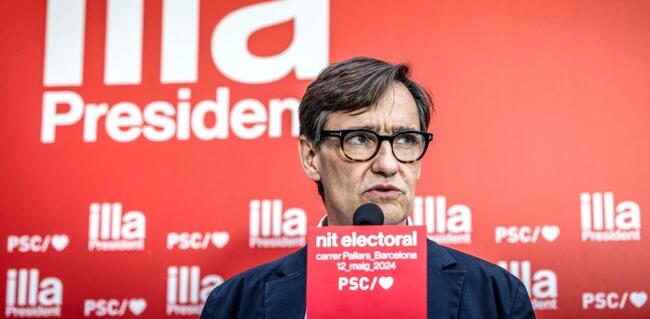
The independence movement lost its absolute majority
The sum of the four pro-independence forces that presented themselves reached 61 MPs, seven less than necessary to achieve the absolute majority that it has lost after holding it for four years. In this arc the results were dissimilar. The Together list, led by Carles Puigdemont, grew up 103.000 votes and four seats. ERC was involved in a resounding fall, lost 178.000 votes and thirteen seats. The CUP fell from nine to four deputies. And the far-right Catalan Alliance stormed Parliament with two deputies.
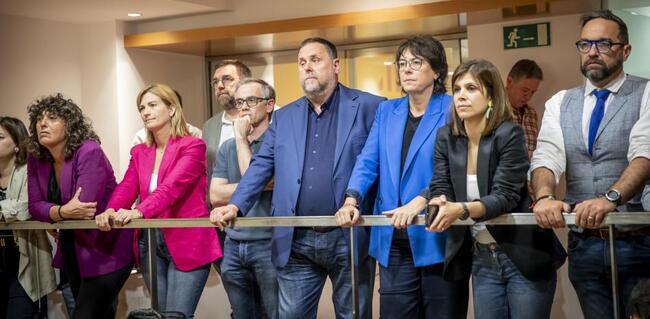
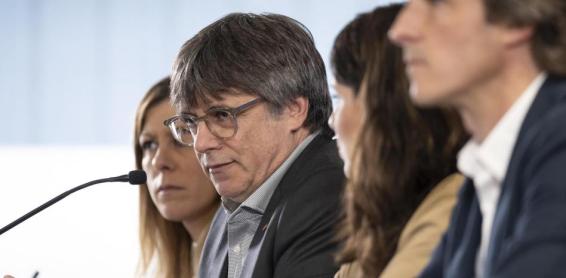
Commons-Sumar ago
It didn't go well for the reformists of the Comuns-Sumar either., headed by Jèssica Albiac who lost two deputies. The Commons do not recover from the loss of the Barcelona City Council, which passed from the leadership of Ada Colau to that of Jaume Collboni of the PSC.
Dispute on the Spanish right
In the conservative spectrum, the PP was strengthened. The Populares, who came from a very relegated location, quintupled their vote and went from three to fifteen deputies., feeding mainly on the votes lost by Ciudadanos. They did not manage to decimate Vox since it kept the eleven deputies it had, but they put a limit on their growth aspirations.
New president or new elections?
Salvador Illia will present himself to the investiture seeking to form the “left tripartite” PSC-ERC-Comuns-Sumar, giving Esquerra time to decide. A crisis unleashed in ERC, Pere Aragonés and Oriol Junqueras, who is the main leader, resigned from politics, applied to follow, but internal criticism put a limit on its continuity until the European elections and then “will go down to listen to ordinary people and seek the endorsement of the militancy” . Although he stated that he will go to the opposition, There are different positions on whether or not they support Illia's investiture. Junts momentarily put aside the differences with ERC and opened the door to the possibility of an independence formula to invest Carles Puigdemont, for which he would also need the abstention of the PSC that won the elections. The political destinies of Barcelona and Madrid have many connections, in that sense, Puigdemont warned Sánchez that if Illia arrives at the Palau he could withdraw his support in the Spanish Parliament. An “anything goes” of threats and negotiations has begun, the result of which could lead to the inauguration of a new president or a call to repeat the elections.. Whatever the outcome, Trust cannot be placed in national or regional bourgeois parties., who erase with their elbow what they write with their hand and remain vested in the limits of the '78 regime and capitalism.
The calendar ahead
Parliament has until 10 June to establish itself and call for the investiture debate, with the deadline of 25 of June. If the candidate for the investiture does not obtain the absolute majority of the plenary session (68 on 135 MPs) After 48 hours you will have a second chance, in which it will be enough to reach a simple majority (more votes in favor than against) and if he doesn't make it either, You can try again in two months, with deadline 25 of August. Yes, there is a blockade with crossed vetoes and the president is not elected, The elections will be repeated in October.
To exchange opinions
Since the outlook is uncertain, it opens the possibility of different scenarios., Therefore, it is risky to make a definitive assessment until the process is completed and there is a new Catalan president.. For now, We share some impressions to exchange opinions; mainly with all those fighters who continue to search for the best path to self-determination, socialism and the best tools to achieve them.
1- How is the process for self-determination?? After the most critical moments of the fight for independence and the freedom of political prisoners, The shares gradually declined to their lowest point today and conservative trends have gained ground. Although the fatigue from so many tense years has influenced, The social sectors that gave their all for the Republic and 1-O maintain their desire for independence. The reproaches for the setback should not fall on the Catalan people but on the leaders of the majority Catalan parties., They have signed the death certificate of the process.
2- Junts and ERC largely responsible for the setback. The right and the extreme right say that Sánchez revived the independence movement. The PSOE boasts of having prosecuted its leaders and they swear that they want self-determination when they set the course for autonomy. From our point of view, The successive PP and PSOE governments used different tactics, one the “club” of the 155 and the other the “carrot” of dialogue, but with a strategy: close the mobilization process for the Catalan Republic. To what extent have they achieved this?? It's an open debate, that cannot divert attention from the role of Junts and ERC. Both missed a historic opportunity when Puigdemont declared independence with the people in the streets and suspended it a few seconds later to seek a negotiation with Mariano Rajoy.. The regime reacted by applying the 155 with its mark of repression, persecution, prison and exile. It was the continuity of the mobilizations that achieved the freedom of the political prisoners and not the cunning of the leaders. Since those historical events, Junts and ERC have stopped talking about a breakup, They have dedicated themselves to negotiating with Pedro Sánchez and have been functional to “turn the page on the Procés”. Because, The partially pro-independence discourse that they maintain cannot hide that they are largely responsible for the setback of the mobilization and the political process against Spanish oppression..
3- Puigdemont, oxygen tank for Junts. In the dispute to discern which of the majority Catalan parties negotiates "In better condition" with the PSOE; with the partial amnesty in process and the result of 12M, Together has strengthened. It is an organization that, despite its horrific right-wing background established in Convergencia i Unió, It feeds on the support that Carles Puigdemont retains. There are sectors of the population that consider it "our president" persecuted in exile and whom they want to see return, despite its past and present maneuvers and contradictions.
4- The PSOE resists stumbles. The weak government of Pedro Sánchez has found the “dialogue” with the independence movement to be profitable, with which it has achieved: two presidential terms, the appeasement of complaints, the possibility of staying in La Moncloa and entering the Generalitat with power. As a product of his criticizable management, Sánchez gets support “with a stuffy nose”, as the “lesser evil” before the independence movement and the right. First Vice President María Jesús Montero, has clearly expressed how they postulate: “We have been able, through our colleague Salvador Illa, to defeat the independence movement at the polls” and has “the ability to stop the reactionary wave that is coming with great force to Europe and wants to get directly into the European institutions”. Not be fooled, the PSOE is not leftist, socialist nor “worker”.
5- Partial recovery of the PP. The dominant feature of the world situation that in one way or another manifests itself in different countries, It is political and social polarization. On the one hand, struggles for social and democratic rights are growing., as shown by the extraordinary mobilization for Palestine that is going through the Spanish State, but it does not have a massively recognized progressive political representation. On the other hand, the different expressions of the right, weaker in the streets, they make their way into the institutions, before which there is a responsibility of the reformists for their disasters and lies. Some of this has been reflected with the achievements of the PP, Vox and Alianza Catalana on 12M. It is a worrying fact that the Spanish and Catalan ultras have been institutionalized in Catalonia., for the moment, among the most reactionary, the PP appears more dynamic. The projections indicate that in the next elections to the European Parliament (6 al 9 of June) the right will continue to grow. We must defeat all right-wing expressions in the institutions and fundamentally in the streets, from the moment they show their heads. In this regard, we repudiate the convention “Europe Viva 24”, that Vox will carry out in Madrid with the participation of other fachas, as Marine Le Pen and Javier Milei.
6- Reformism does not take off. After integrating the “progressive coalition” government with the PSOE, Podemos fell apart as a “progressive” alternative. So, Yolanda Díaz's Sumar project was nominated as a replacement, also since its full integration into the regime, but it has not managed to take off, At least that is how it has been reflected in the votes in Galicia, the Basque Country and Catalonia.
7- The CUP does not appear as an alternative. Beyond the limitations of progressive “nationalism”, in Galicia the BNG had a historic rise and in the Basque Country EHBildu challenged the PNV for victory. In Catalonia the same did not happen with the CUP, which has retreated again. Why doesn't the Candidacy capitalize on the discontent with the majority Catalan parties? In the Garbí Process, It will be a challenge for the militancy to answer this question and resolve it. From our point of view, This is because it is not proposed as a clearly differentiated option from ERC., Junts and the reformists of all stripes and their growing adaptation to the institutions. The 12M constitutes a new call for attention for the CUP to make a turn to the left, the mobilization and self-organization of the workers and the people since class independence. The CUP is at the same crossroads where Syriza once was, Podemos and other organizations: choose between reform and revolution.
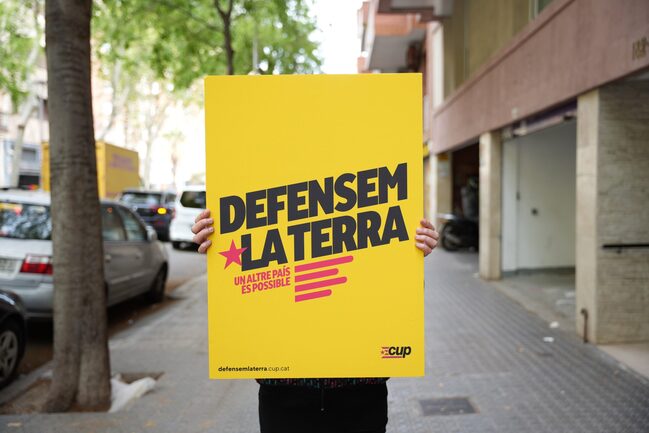
8- A Left Front is needed. We will continue to insist on the need for the CUP to call for the formation of a Extreme Left Front, with a principled program, both to intervene in the elections and in the struggles. In the same way, We extend the proposal to the entire Independentist Left, Anti-capitalists and other organizations that claim revolutionary socialism such as LI, Revolutionary Left and CRT. Building a Left Front is an essential step to take advantage of the opportunities offered by political processes, the class struggle and overcoming the marginality of dispersion. With a transitional program that combines the fight for social and democratic rights on a daily basis, for salaries that exceed inflation, labor rights that eliminate precariousness, full employment, cheap shipping, accessible housing, efficient health and education, quality and free. For the rights of women and immigrants and in defense of the environment. The fight for self-determination must not be separated or opposed to the anti-capitalist fight, for a workers' government and for socialism
9- With two strategies: the mobilization of the masses and the construction of the party. In the meantime, What never changes is the need to continue promoting the mobilization of the masses, the unity of action in the struggles of the working class and the need to build a strong revolutionary party, socialist and internationalist, as far from sectarianism as from opportunism, for which we invite you to learn about Socialism and Freedom (SOL) as a member of the International Socialist League (LIS)

